Back to the boardgame café. With
images; cc-by-sa on
everything.
First game of the night was
Pandemic: Contagion,
which reminded me quite a lot of BTRC's
Black Death;
for a start they have similar themes, where each player takes the role
of a disease ravaging its way across the world, and scoring is based
on the total number of people killed. Here you don't have the trade-off of
contagiousness versus lethality, though; rather, you have three
attributes, which denote the number of cards you draw, the number of
infection cubes you place at a time, and a "hit point" score that lets
you resist the effects of the World Health Organisation.
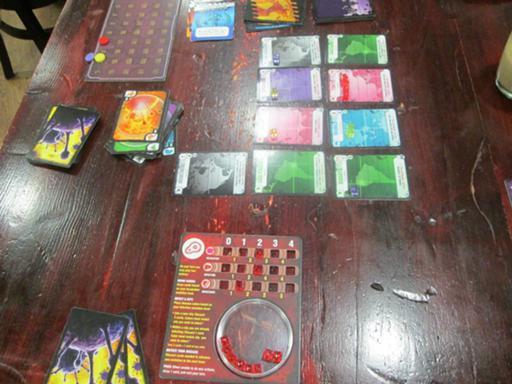
You don't get to do much on your turn: two actions, chosen from
drawing cards into your hand, infecting people somewhere in the world
(preferably using cards of the right colour), or mutating yourself to
increase one of your stats. Since there are only twelve turns to the
game (at least in the three-player version), there's not much of a
feeling of player input.
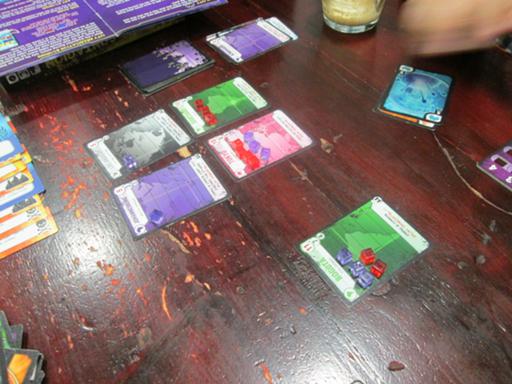
I misheard one of the scoring criteria, which didn't help, but we
ended up wiping out a reasonable number of cities. I didn't do
terribly well. I suppose it's all right for what it is, but it felt
a bit random, and I shan't be in a rush to play it again.
We didn't play, but looked over people's shoulders at
Riff Raff:
you're balancing things on the ship's wobbly rigging, and catching
stuff as it falls off.
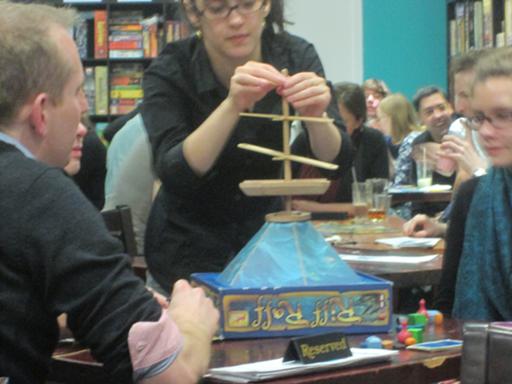
The next game was one I've been looking forward to for a while,
Castles of Mad King Ludwig;
it's by Ted Alspach, who also designed
Suburbia, and
feels in some ways like a revised and shaken-up version of that game.
You don't have a hex grid, but rather irregularly-shaped rooms; you
don't have four types of tile, but rather eight; you don't have a
steady progression of tiles from the expensive new slots to the cheap
older slots, but rather the first player each round can rearrange the
tiles available for purchase as he sees fit. You don't have the
scoring constraints of Suburbia, where as you build things up the
quality of life for your residents goes down.
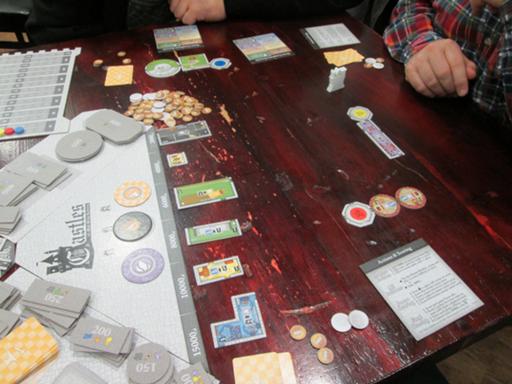
There are still constraints, though: you have to match up room
entrances to each other, and rooms score more or fewer points for
being next to others of the same type. And there are still secret
objectives.
I enjoyed it, but at the end of the evening I bought a copy of
Suburbia. I'm not attempting to generalise this to everyone's
experience, but to me it felt just a bit too random: for example, I
had a goal card awarding me extra points for building a certain sort
of room, but only one of those rooms ever came out of the tile decks.
I wouldn't mind playing it again, and many people reckon it's better
than Suburbia; I think I have to write this off as personal taste.
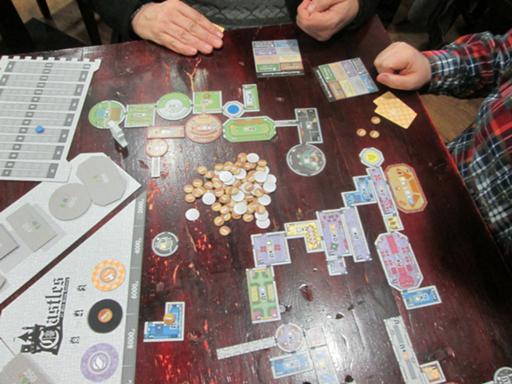
Last game of the evening was
Eight-Minute Empire.
On your turn, you take a card (the un-picked ones gradually get
cheaper, in the manner of Surburbia and many other games); this lets
you create or move armies, destroy your foes (oddly, any foe anywhere,
not just one near your armies), or build cities. The card also has a
resource of some sort, and the more matching ones you have at the end
of the game, the more points you can score from it.
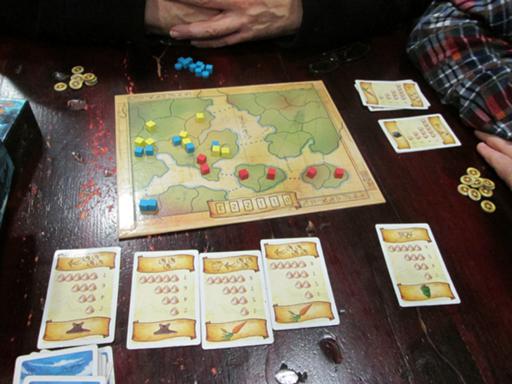
I (Red) ended up pretty much ignoring the resources, and just
spreading out onto multiple continents. When we counted up the score,
it took us to the third tie-breaker to reveal that I'd lost to Blue.
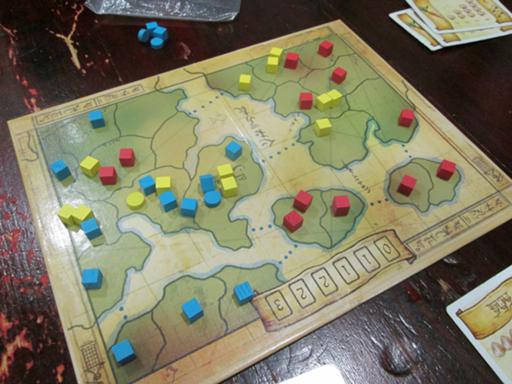
I'm not sure there's a huge amount of strategic depth here, but it's
enjoyable as a filler. There's very little fighting; I think only one
"destroy enemy army" card came up in the whole game. Again, not one
I'll rush out and buy, but I wouldn't mind giving it another go some
time.
Comments on this post are now closed. If you have particular grounds for adding a late comment, comment on a more recent post quoting the URL of this one.